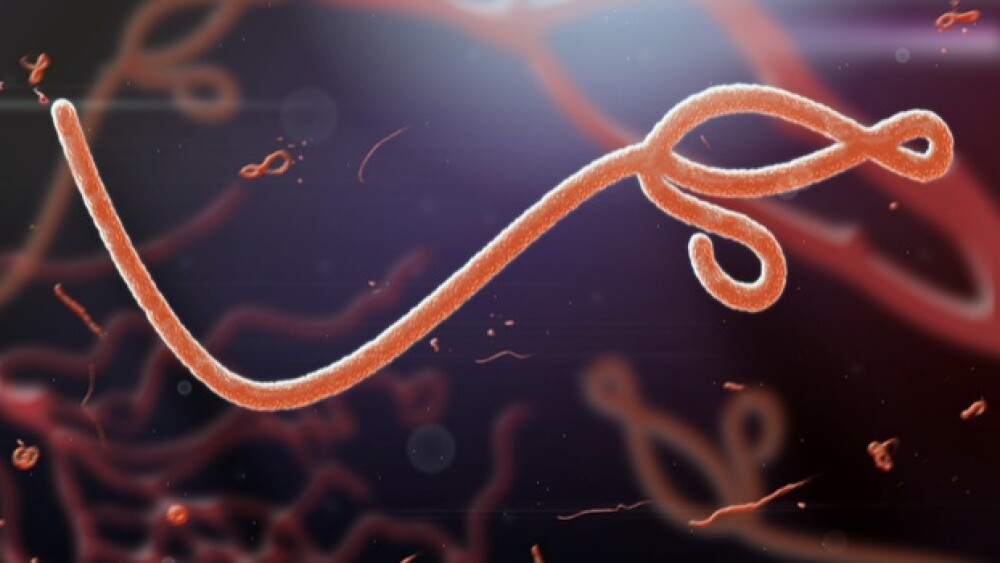The European Commission approved the world’s first Ebola vaccine. The vaccine is manufactured by Merck and has a trade name of Ervebo.
The European Commission approved the world’s first Ebola vaccine. The vaccine is manufactured by Merck and has a trade name of Ervebo.
“The European Commission’s marketing authorization of Ervebo is the result of an unprecedented collaboration for which the entire world should be proud,” said Kenneth C. Frazier, Merck’s chairman and chief executive officer. “It is a historic milestone and a testament to the power of science, innovation and public-private partnership.”
Frazier added, “After recognizing the need and urgency for an Ebola Zaire vaccine, many came together across sectors to answer the global call for outbreak preparedness. We at Merck are honored to play a part in Ebola outbreak response efforts and we remain committed to our partners and the people we serve. We also look forward to continuing to work with the FDA and the African countries on their regulatory reviews over the coming months and with the World Health Organization on vaccine prequalification, which will help broaden access to this important vaccine for those who need it most.”
Ebola virus causes a hemorrhagic illness that begins with common symptoms of fever, headache, muscle pain and fatigue, but can move to severe internal bleeding and death. It spreads via direct contact with bodily fluids of someone who has the diseases or died from it. The average fatality rate is 50%.
Ervebo is currently being used under a “compassionate use” program in the eastern Democratic Republic of Congo (DRC), where there has been the second-largest Ebola outbreak on record. Since August 2018, more than 3,000 people in the country have tested positive for Ebola and more than 2,000 people have died of it. In the last year, more than 250,000 people have been dosed with the Merck vaccine in DRC.
Another Ebola vaccine being developed by Johnson & Johnson, is being administered to 50,000 people in Goma, a city with two million people on the Rwandan border of eastern Congo. The J&J vaccine requires two injections eight weeks apart, while the Merck vaccine only requires a single shot.
“The introduction of a second vaccine is not meant to replace [Merck’s] vaccine, but to complement it and hopefully provide us with an additional tool in the fight against future Ebola outbreaks,” said John Johnson, who is leading the project for Médicins Sans Frontières (MSF, or Doctors Without Borders), reported Physicians Weekly.
The Merck vaccine is being distributed in what is called “ring vaccination.” This strategy focuses on determining who is most likely to infect or have been infected and vaccinating the most susceptible in “rings” in order to isolate the virus and slow and prevent its transmission.
The U.S. Food and Drug Administration (FDA) is currently reviewing Merck’s application for the vaccine, with a target action date in the first quarter of 2020. Forbes notes that, “Ervebo won’t be a blockbuster money maker for Merck. Vaccines typically are far from the most profitable products for pharmaceutical companies, and the Ebola virus is far from common in higher income countries.”
As a result, the World Health Organization and other world health organizations will have to work on ways to support this and other similar vaccines.
Despite some of the economic obstacles to vaccines, they provide a significant return on investment. A 2016 Johns Hopkins University study found that for every dollar invested in vaccination in the 94 lowest-income countries in the world, $16 were expected to be saved in healthcare costs, lost wages and lost productivity. Taking into consideration healthier and longer lives and the long-term burden of disability, the net return increases to $44 per $1 invested.
At this point, Merck’s vaccine is the only one tested during an outbreak, where it has shown high effectiveness in preventing infection. It was first patented in 2003 and has been used in DRC and in 2015 during an Ebola outbreak in Guinea.
“This is a vaccine with huge potential,” said Seth Berkley, chief executive officer of Gavi, the Vaccine Alliance based in Geneva, Switzerland. “It has already been used to protect more than 250,000 people in the DRC and could well make major Ebola outbreaks a thing of the past.”





